OPEC optimistic: Economic recovery, non-bloc supply stagnates
In its monthly report, OPEC said the global economy had “outperformed expectations” in the first half of the year and was on solid footing for continued steady growth in the second half, although it did not rule out the possibility of a quarterly slowdown. The organization maintained its forecast for global oil demand growth for 2025 and 2026, after a downward revision in April.
A highlight of the report is the downward revision of the forecast for supply from countries outside OPEC+. Specifically, OPEC expects non-OPEC supply to increase by only 730,000 barrels per day in 2026, down 70,000 barrels per day from last month's forecast.
Most notable is the outlook for US shale oil – OPEC+’s main competitor. OPEC now forecasts US “tight oil” production to remain at 9.05 million barrels per day in 2026, instead of rising as in previous forecasts. In January, OPEC had expected that figure to reach 9.28 million barrels per day.
According to OPEC, this adjustment reflects continued investment discipline by shale oil companies, improved production efficiency, slowing drilling activities, and increased associated gas production in key fields.
This development is considered favorable by OPEC+, helping the alliance to regulate the market more easily after many years of fierce competition with US shale oil - a force that has put strong downward pressure on the market. Some sources said that OPEC+'s decision to increase production faster than expected in May to July this year is also aimed at regaining market share from the US.
OPEC+, for its part, increased production by 180,000 barrels per day in May, to 41.23 million barrels per day. However, this increase is still below the new quota (which allows for an increase of 411,000 barrels per day from May). Some countries, such as Iraq, voluntarily cut deeper to compensate for previous periods of overproduction. Kazakhstan also reduced production slightly, but still exceeded its allocated quota.

On June 13, oil prices increased sharply, approaching the $80/barrel mark after airstrikes between Israel and Iran raised concerns about supply in the region (Photo: The Nation).
Geopolitics "adds fuel to the fire" of the market
Although the supply-demand balance is changing, the strong factor dominating the market today is geopolitical tensions, especially between Iran and Israel.
Over the past week, Israel has carried out airstrikes on military and nuclear facilities in Iran, causing oil prices to briefly spike to nearly $80 a barrel. Concerns about supply disruptions in the volatile Middle East have immediately overshadowed optimistic forecasts.
Faced with this complex situation, energy industry CEOs are cautious. At the Energy Asia conference in Kuala Lumpur, Lorenzo Simonelli, President and CEO of energy technology group Baker Hughes, shared with CNBC: “In my experience, never try to predict oil prices because you will definitely be wrong.” He said the situation is evolving quickly and is unpredictable, while emphasizing that Baker Hughes will “wait and see” and monitor closely to make appropriate decisions for each project.
Also at the conference, Meg O'Neill, CEO of Australian oil and gas group Woodside Energy, said the company is closely monitoring the impact of the Iran-Israel conflict. According to her, oil futures prices have fluctuated sharply in just the past few days.
Of particular concern to Ms O'Neill is the potential disruption to the Strait of Hormuz, through which about 20% of the world's oil flows each day. "If the flow through the Strait of Hormuz is disrupted, oil prices will rise even more as countries struggle to meet their energy needs," she warned.
Currently, according to the Joint Maritime Information Center (JMIC), the Strait of Hormuz is still operating normally, although there is still much speculation about the possibility of Iran blocking the area in retaliation. JMIC said there is no confirmed information about a blockade, but the situation is being monitored “very closely”.
Ms. O'Neill also noted that oil and gas prices have always been heavily influenced by geopolitics, as demonstrated by major events such as World War II and the oil crisis of the 1970s. However, like Mr. Simonelli, she declined to make any specific predictions about oil prices: "There are many things that can be predicted, but on oil prices in five years, I wouldn't bet."
Supply-demand tug-of-war and geopolitical risks
The oil market entered the second half of the year with two opposing forces. On one side, OPEC's optimism about the economic recovery and signs of slowing supply outside the bloc - factors that allowed OPEC+ to maintain its leading role in the market.
On the other hand, however, are unpredictable risks from the Middle East - a key region for the energy industry, where even a sudden crisis could shake the global supply-demand balance. While OPEC believes it can control the market with its production policies, major oil corporations choose to keep their distance from forecasts, reflecting a high level of vigilance in a volatile environment.
In that context, prudence, flexibility and the ability to quickly adapt to geopolitical developments will be key to success, not only for oil producers, but also for importing countries and global investors.
Source: https://dantri.com.vn/kinh-doanh/opec-lac-quan-ceo-dau-khi-ne-du-bao-trong-bong-may-trung-dong-20250617082835756.htm


![[Photo] Opening of the 13th Conference of the 13th Party Central Committee](https://vphoto.vietnam.vn/thumb/1200x675/vietnam/resource/IMAGE/2025/10/6/d4b269e6c4b64696af775925cb608560)

![[Photo] Prime Minister Pham Minh Chinh chairs the Government's online conference with localities](https://vphoto.vietnam.vn/thumb/1200x675/vietnam/resource/IMAGE/2025/10/5/264793cfb4404c63a701d235ff43e1bd)

![[Photo] Prime Minister Pham Minh Chinh launched a peak emulation campaign to achieve achievements in celebration of the 14th National Party Congress](https://vphoto.vietnam.vn/thumb/1200x675/vietnam/resource/IMAGE/2025/10/5/8869ec5cdbc740f58fbf2ae73f065076)



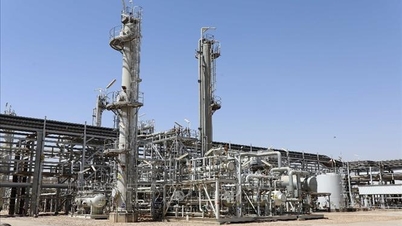





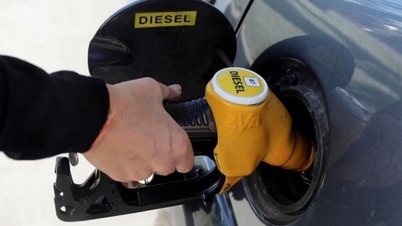













































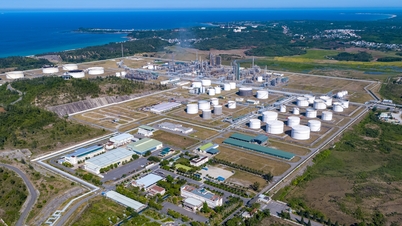




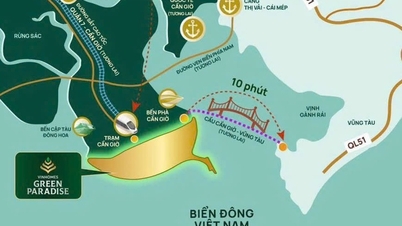
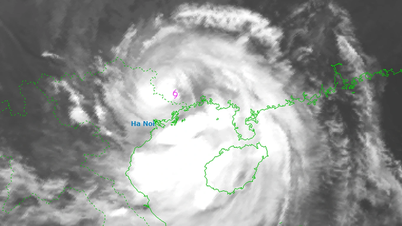

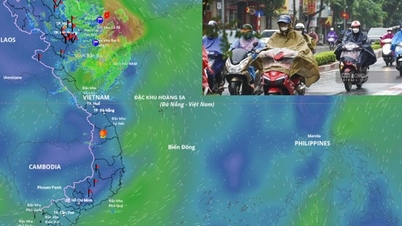





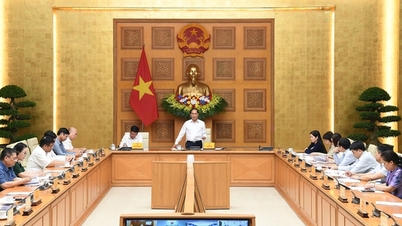

























Comment (0)